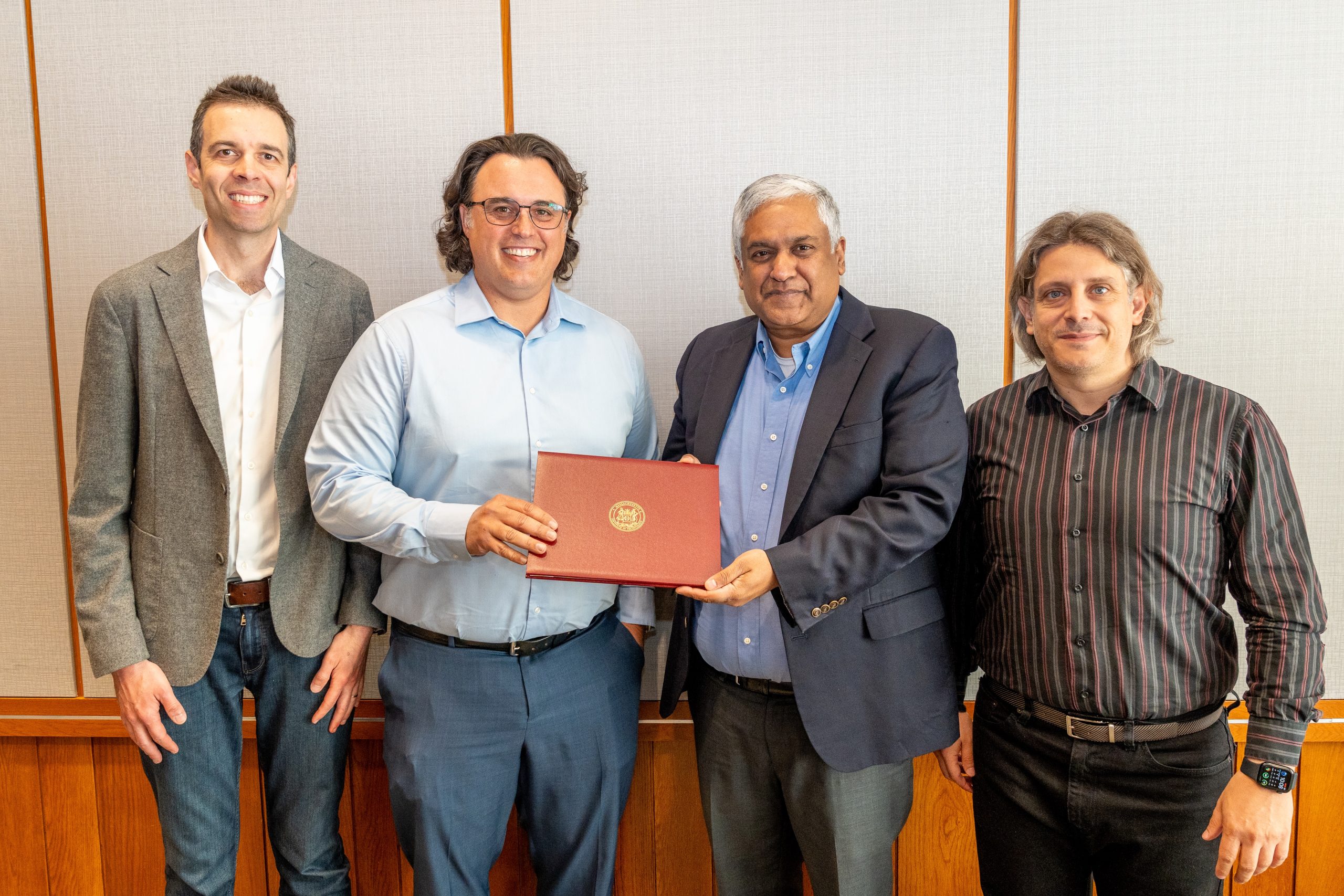This compact, low-power receiver could give a boost to 5G smart devices
Researchers designed a tiny receiver chip that is more resilient to interference, which could enable smaller 5G “internet of things” devices with longer battery lives.
Professor Emeritus Hank Smith honored for pioneering work in nanofabrication
Longtime MIT electrical engineer receives SPIE Frits Zernike Award for Microlithography in recognition of outstanding accomplishments in microlithographic technology.
Celebrating an academic-industry collaboration to advance vehicle technology
MIT Advanced Vehicle Technology Consortium marks a decade of developing data that improve understanding of how drivers use and respond to increasingly sophisticated automotive features.
Anantha Chandrakasan named MIT provost
A faculty member since 1994, Chandrakasan has also served as dean of engineering and MIT’s inaugural chief innovation and strategy officer, among other roles.
Startup’s biosensor makes drug development and manufacturing cheaper
Protein sensor developed by alumna-founded Advanced Silicon Group can be used for research and quality control in biomanufacturing.
First-of-its-kind device profiles newborns’ immune function
The BiophysicaL Immune Profiling for Infants (BLIPI) profiles an infant’s immune system in under 15 minutes, using just a single drop of blood.
After more than a decade of successes, ESI’s work will spread out across the Institute
John Fernandez will step down as head of the Environmental Solutions Initiative, as its components will become part of the Climate Project and other entities.
Amos Winter receives 2025 Bose Award for Excellence in Teaching
Established in 1990, the award stands as a tribute to the late Amar Bose, a professor of electrical engineering and computer science and the founder of the Bose Corporation.
Bringing meaning into technology deployment
The MIT Ethics of Computing Research Symposium showcases projects at the intersection of technology, ethics, and social responsibility.
Photonic processor could streamline 6G wireless signal processing
By performing deep learning at the speed of light, this chip could give edge devices new capabilities for real-time data analysis.








